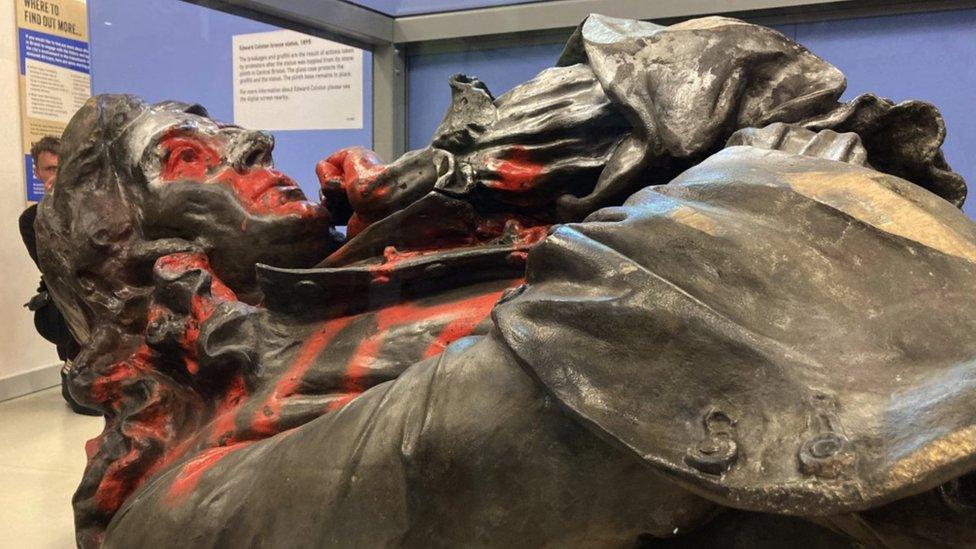Decision expected on Colston statue plaque
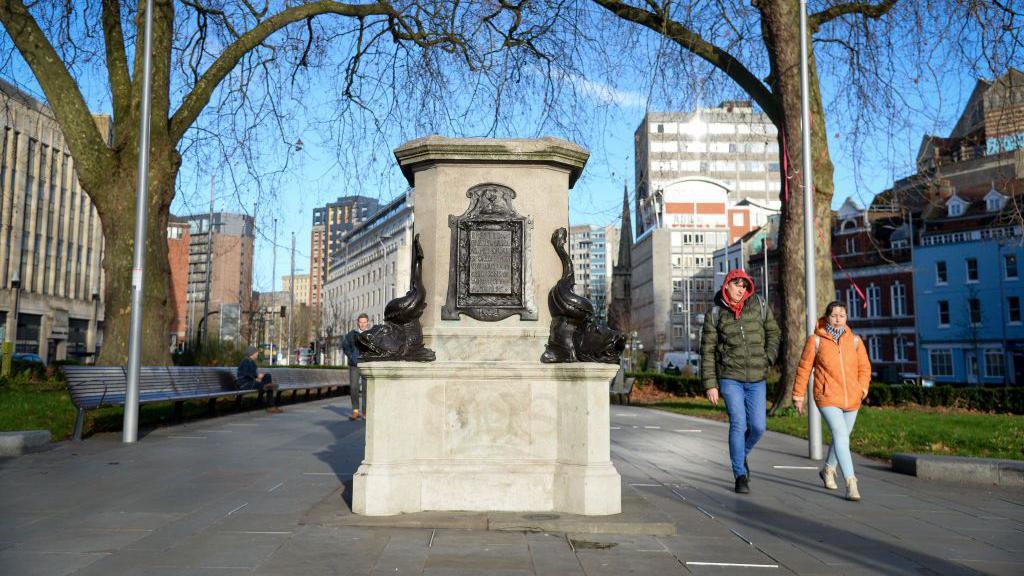
There has been disagreement about the wording of the new plaque intended for the plinth which previously held the Edward Colston statue
- Published
The wording for a new plaque on the empty plinth where a controversial slave trader's statue used to stand could soon be approved.
Protesters tore down the statue of Edward Colston in Bristol on 7 June 2020 and threw it into the harbour.
Last February, a city council committee approved planning permission for the plaque on the condition that the proposed wording was changed to reflect Colston's acts in the slave trade.
The development control B committee will vote on granting planning permission for the latest version of the plaque next Wednesday.
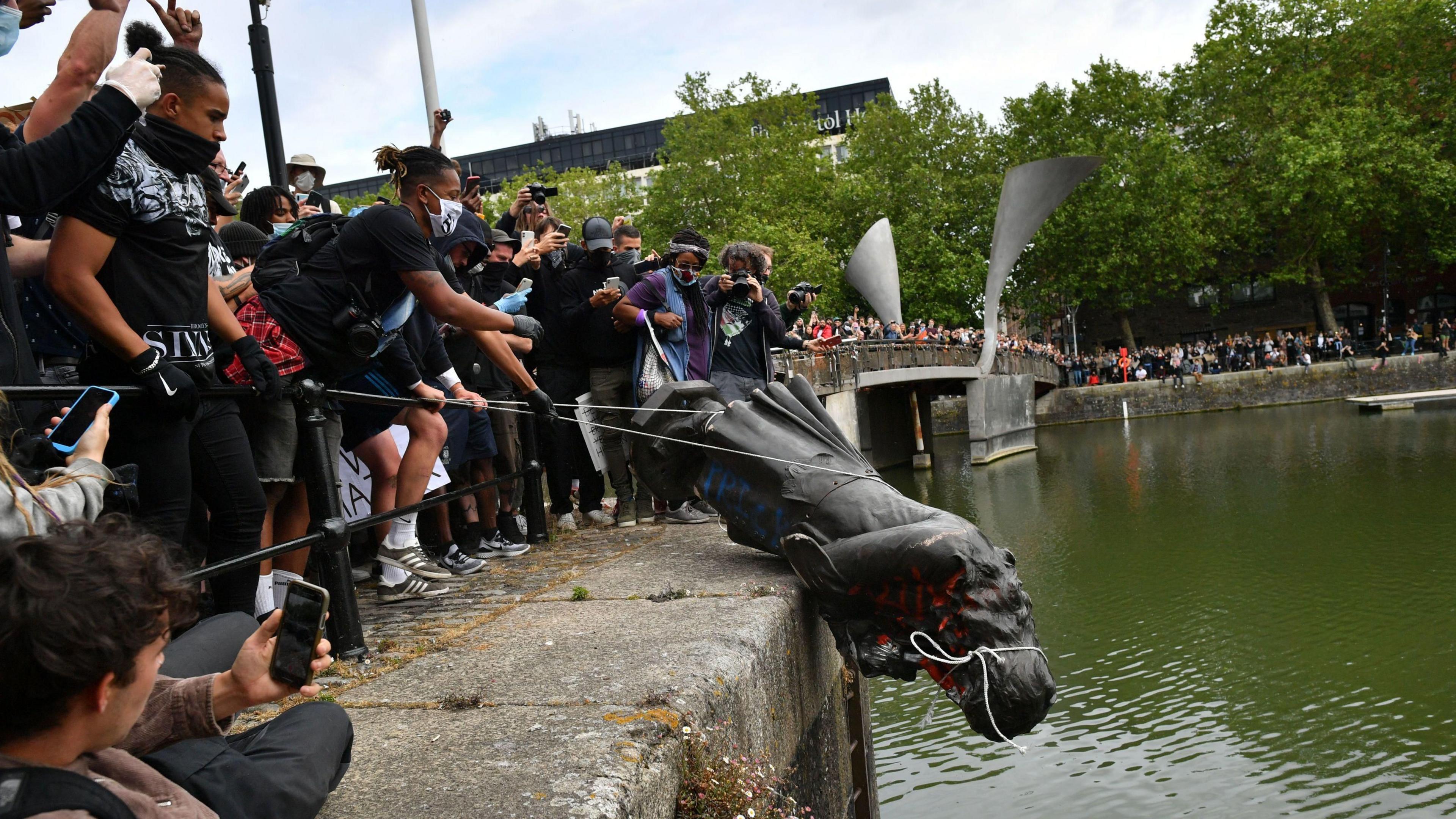
The Colston statue was pulled down and thrown into Bristol harbour in 2020
The Local Democracy Reporting Service reports that the proposed wording now reads: "On 13 November 1895, a statue of Edward Colston (1636 – 1721) was unveiled here.
"In the late twentieth and early twenty-first century, the celebration of Colston was increasingly challenged given his prominent role in the enslavement of African people.
"On 7 June 2020, the statue was pulled down during Black Lives Matter protests and rolled into the harbour.
"Following consultation with the city in 2021, the statue entered the collections of Bristol City Council’s museums."
The latest wording removes the words "celebrating him as a city benefactor" from the first sentence, which some members of the committee objected to.
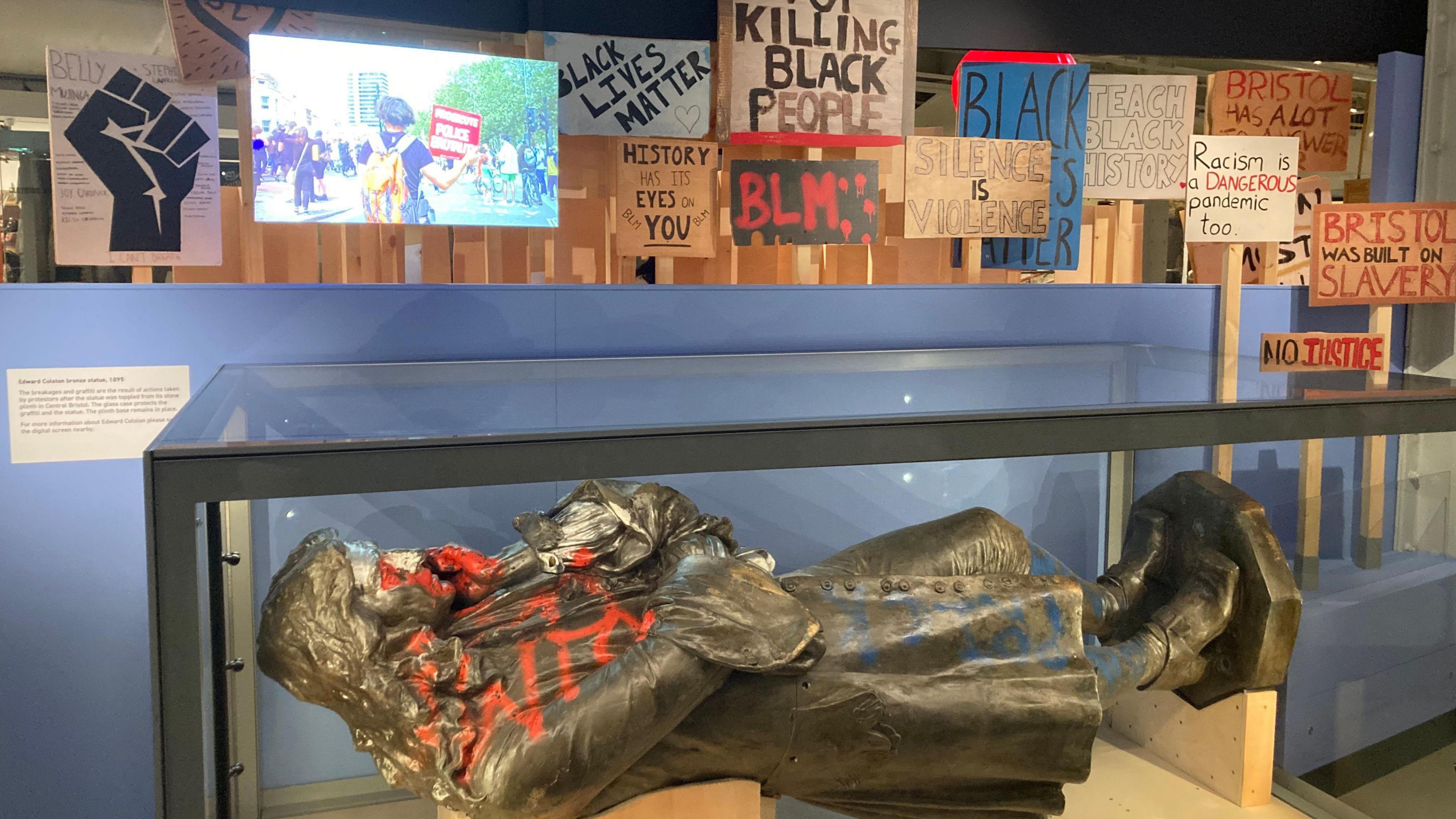
The toppled statue is now on permanent display in Bristol's M Shed museum
People, including local historians and councillors, have disagreed about putting a plaque on the plinth detailing Colston's slave trading past for several years.
Back in 2018, the council agreed a new plaque should be placed underneath the statue, which then still stood on the plinth, explaining how Colston enslaved over 84,000 Africans and would not donate to charities unless they shared his views.
The original one placed there in 1895 did not mention the slave trade but described Colston as “one of the most virtuous and wise sons of the city”.
Get in touch
Tell us which stories we should cover in Bristol
Follow BBC Bristol on Facebook, external, X, external and Instagram, external. Send your story ideas to us on email or via WhatsApp on 0800 313 4630.
- Published3 April 2024
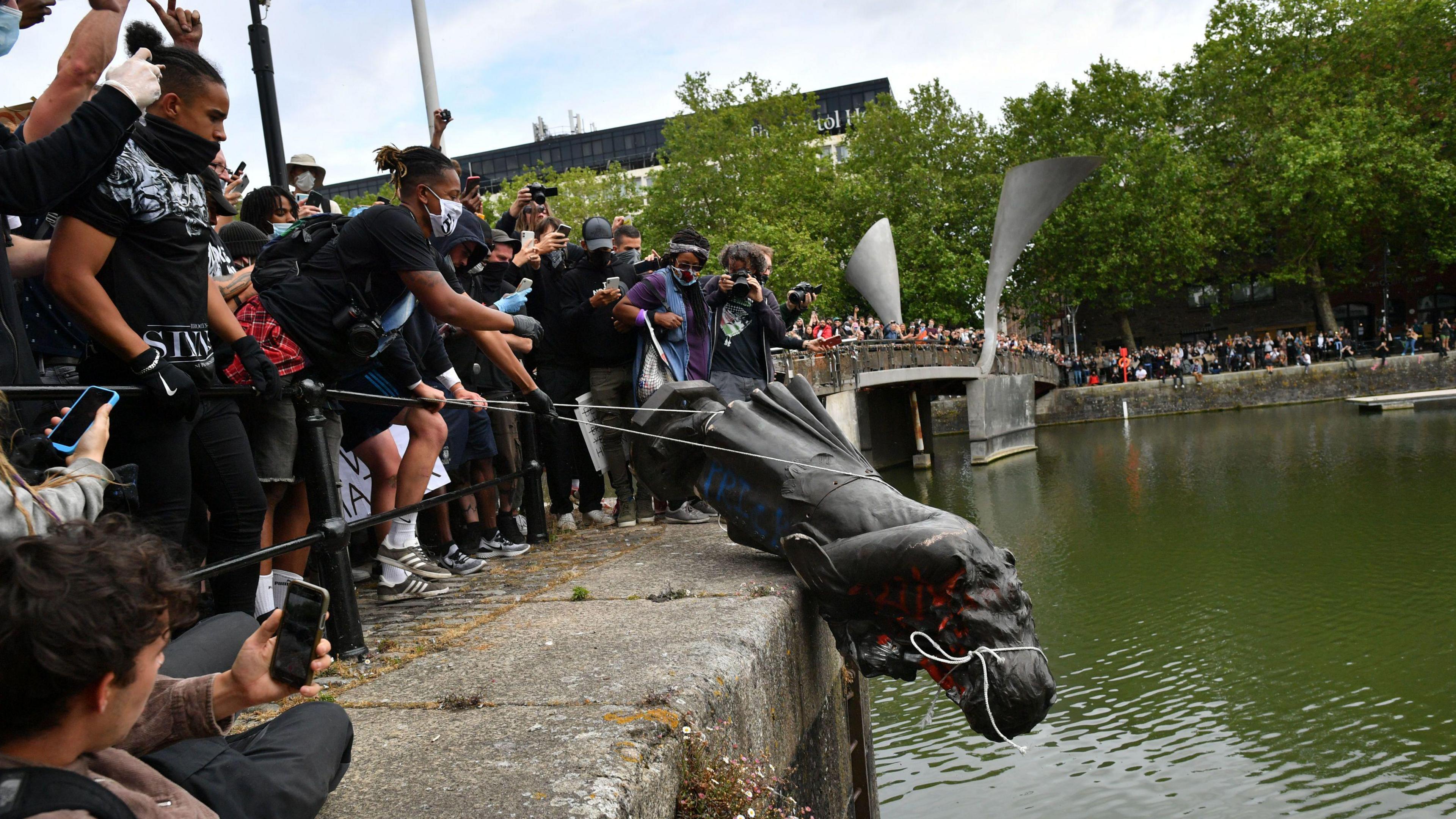
- Published10 April 2024
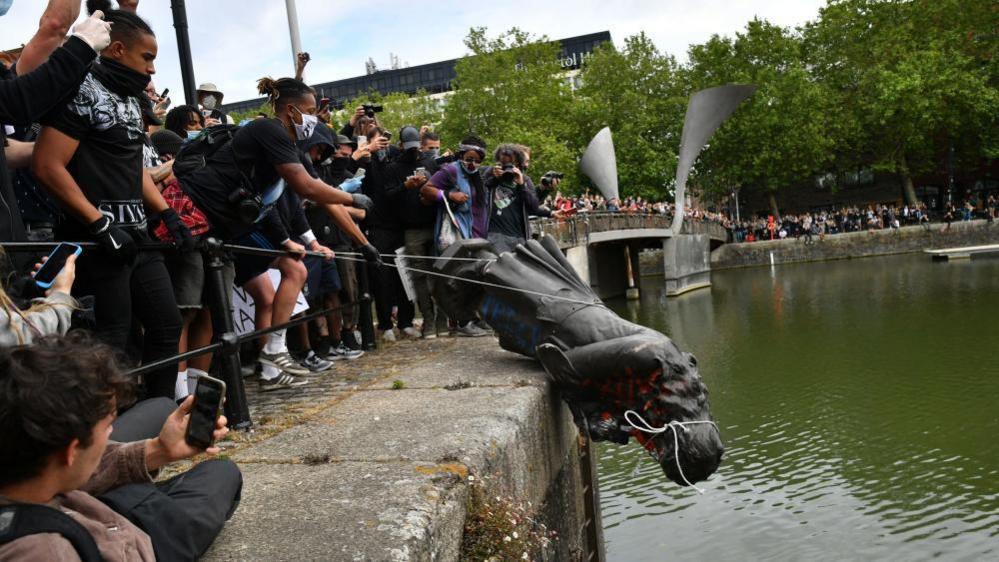
- Published14 March 2024
